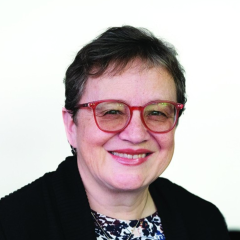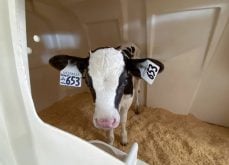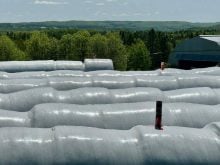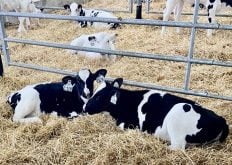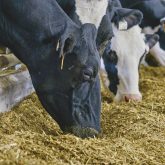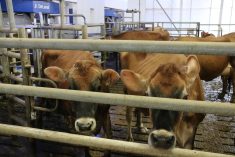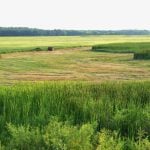The renovation work on Sophie Bédard and Dave Fortier’s barn at Panama Farm in Saint-Pierre-Baptiste, Centre-du-Québec, was challenging on a human level, but they are now very satisfied with their barn.
The contractor arrived on Aug 27, 2024, and by Sept. 17, the workers had left. This period was so trying that Dave and Sophie were exhausted.
Not only did they have to manage the herd during significant changes to the barn, but then, the cows had to learn how to go to the robot. They felt like crying. Pushing the cows to the robot was what Dave found most difficult after working 15 hours a day for three weeks.
Nearly a month after the renovations were completed, the entire extended family took a weekend vacation to celebrate Dave’s 40th birthday. A worker was hired to take care of the farm.
Sophie explains that they would have done this even without a special occasion. It’s something she suggests for anyone planning such a project.
“One thing that helped us get through it — it may seem trivial, but social media,” says Sophie. I posted a lot — every day — and many people wrote, “Just go for it, you won’t regret it.”
In the barn, Sophie blasted Queen’s “We Will Rock You” to encourage the team.
Two days were particularly intense, with all the trades present, about 15 people in total. The barn was packed with workers: the electrician, the plumber, the stall installers, plus the contractors’ workers and family.
“At one point, I said, ‘That’s great, let’s get the beer out!’” says Sophie.
Today, they are grateful for everyone who helped them get through it, whether it was the workers, the family, or even the friends who looked after the children or came to deliver coffee at 4 a.m.
“Dave’s father was a guiding light for this project. He was there every day.” His support is so strong that Sophie and Dave nicknamed Roch Fortier The Rock.
Family was central to their decision to renovate. They appreciate being able to spend more time with their loved ones since they got their new barn. “The goal is to work from eight to five in the barn and the rest of the time to be with our children,” says Sophie.
New barn
The drop in milk production during renovations and the transition to robots was stressful because there were payments to be made. When the robot was first started, the cows struggled to go once a day. Fortunately, a month after the renovations, milk production returned to what it was before. After three months, the cows are going three times a day.
“Our strength is really cow management,” explains Sophie. “But no one is capable of putting cows in the robot without suffering.” »
Now that the cows are used to it, they can really appreciate their new barn. Beyond the robotic milking, it’s the relationship with them that they love. “The cows come to see us, to be scratched,” says Sophie. “We don’t just milk them and send them outside. We see them the same way as in the pasture, but next to you.”
In terms of animal welfare, which is an important value of the farm, Sophie thinks it’s better. “I think they have better winter comfort,” she says. In summer, the cows went outside to pasture, but in tie-stalls, in winter, they always stayed in the same place with the same cows.
Now, Sophie notices that the cows are making friends and moving around and doing activities together, like going to drink or eat.
“You can also see it because they’re calm. There’s no running around in the barn. It’s quiet. They don’t moo,” says Sophie. She adds that animal welfare influences health, particularly during heat. “The heats are impeccable,” says Sophie. It positively influences the pregnancy rate. And the cows are eating better and better.
“I think it’s really an upgrade from what we had before,” says Sophie. They thought they were doing the right thing by sending their cows out to pasture, but with free-stall housing, they are better “psychologically and emotionally” year-round.




